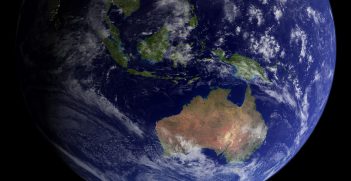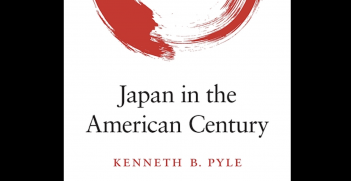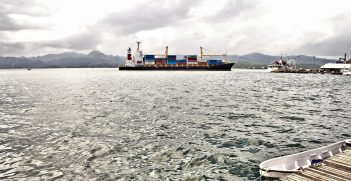Australia's White Paper Faux Pas

Australia’s Foreign Policy White Paper was hoped to be as comprehensive as it was long-awaited. However, despite the document’s broad scope, a certain Je ne sais quoi is missing.
Australia’s 2017 Foreign Policy White Paper is necessarily a broad-sweeping ranking of priorities and partners. Not unexpectedly, the paper renews commitment to Australia’s major partner, the United States, while foreshadowing a nuanced relationship with China, about which there has been much discussion.
The paper makes precious little mention, however, of France, Australia’s closest neighbour off the eastern coast of Queensland through its territory, New Caledonia. France is not only Australia’s closest eastern neighbour, but bookends the entire South Pacific, from New Caledonia at the western end to uninhabited Clipperton Island to the far east just off the Mexican coast. France also occupies the strategic centre, at French Polynesia and Wallis and Futuna. It allocates ongoing strategic assets to New Caledonia and French Polynesia.
In the way of these types of analyses, French strategic experts will undoubtedly play the game of “spot the references to France” in this rare statement of Australian foreign policy objectives. In this they will be disappointed. There are just four specific mentions of France. Two are in the Glossary (listing members of the G20 and the Joint Comprehensive Plan of Action relating to Iran’s nuclear program). Of the remaining two substantive references, one identifies France as one of two key EU member states (the other is Germany) after the United Kingdom, with which Australia will strengthen bilateral relationships on global economic governance. The other reference is at least in the Pacific chapter but only notes joint maritime surveillance and disaster management activities with the US and New Zealand, under the FRANZ arrangement concluded in 1992.
While there are many general references to “working with [unspecified] others” in the document, for example over North Korea, and one to working with “Pacific partners”, it cannot be necessarily assumed that France is among their number. It is to be hoped that France is not covered by the reference in the Pacific chapter to engaging “the Pacific’s outside partners” given France’s unique status as a western partner with a substantial resident sovereign status in the South Pacific.
Why the disappointment?
First, because France sees its relationship with Australia as entering a new ‘strategic partnership’ phase, and Australia itself as recently as early this year signed on to an ‘enhanced strategic partnership’ with France. So far, the content of these intentions is less than clear and the white paper does not elaborate.
Second, because Australia only last year granted its largest defence contract ever, $53 billion to construct 12 Shortfin Barracuda submarines, to France. It would be logical to extract some kind of quid pro quo in terms, say, of closer defence collaboration, a refreshed approach by France to concluding an EU free trade agreement with Australia post-Brexit and/or greater scientific and technical collaboration. But there’s no such mention.
Third, the paper’s sparse references to France disappoint because both France and Australia are facing the same challenges in the South Pacific region. It is not unreasonable to assume that Australia would be looking at new ways to work with France to manage them. Australia and France are both resident sovereign powers with real assets and geostrategic interests there.
A relevant side issue is the paper’s emphasis on the Indo-Pacific, which minimises Australia’s separate powerful strategic reach into the east (Pacific), the north (Asia), and west (Indian Ocean), thereby blurring its Pacific priority at a time when the most dramatic geo-strategic power shifts are occurring there. Australia, by its geography and continental status, is the only country to be endowed with the enviable triple-headed reach that it seems so willing to diminish in the all-encompassing Indo-Pacific notion; but France, through its overseas territories, at least shares two of the three sets of interests, in the Indian and Pacific Oceans.
The white paper’s relegation of France to that of an important but primarily European power in Australia’s global efforts, and just a longstanding FRANZ partner in the South Pacific, undervalues the potential of a partnership with a well-resourced power with similar interests in the two oceans at a time of change.
Finally, the few references to France don’t seem to match with the paper’s overall prioritisation of climate change and sustainable development, key focal points in the immediate Pacific neighbourhood, and areas where France, through its technological expertise deriving from its research centres in the region, is well-placed to contribute.
Denise Fisher, a former senior diplomat who served as Australian consul general in Noumea and high commissioner in Harare, is currently a visiting fellow at the ANU Centre for European Studies.
This article is published under a Creative Commons Licence and may be republished with attribution.





